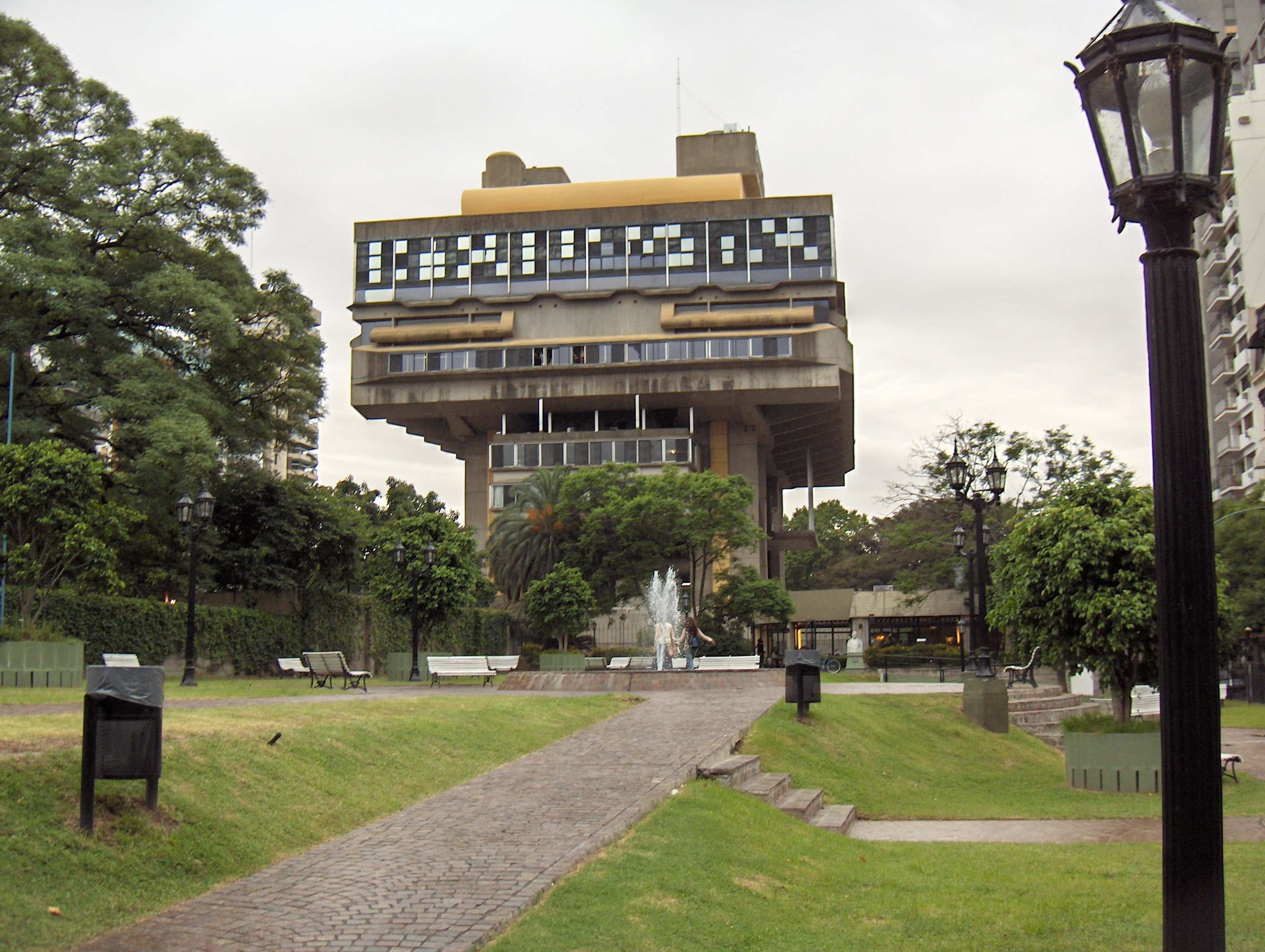
I’m staring out of a filthy window of one of the top public libraries in Buenos Aires. The surrounding buildings and parks would be lovely, if only I could see them clearly. Years of industrial development and city pollution have created a greasy haze on the glass’s exterior, and it makes me nauseous if I look at this sadly distorted skyline for too long. Here I sit, resting my weary feet atop this grimy castle, and reflecting on how bleakly difficult it was to get in here.
It’s late spring, and the air is lushly humid. Puddles of refuse commingle with the thick scent of jasmine, and riding my bike for 20 minutes from my apartment in Belgrano feels like a triathlon. I’m thankful that the cheap chain on my secondhand “bici” only unhinges once on my journey to the southeast, although smears of black lubricant cover my inner right calve after my ancient steed leans against my sweaty leg at a traffic light.
Jon and I finally arrive at a tall, seemingly top-heavy that reminds me of the Geisel library on the UCSD campus, if that building had an older, dilapidated aunt that had smoked from birth. We get into the first floor and wait for the elevator for five minutes. Although I keep mopping up the moisture from my face, I feel like it’s dripping onto the cracked tiles beneath my feet, and it makes me self-conscious among the well-dressed students and young adults who seem unmiffed by the stifling heat.

We finally get to the 6th floor and are told that it’s only for students. Unfortunately I’d left my decade-old Berkeley ID in the states, so entrance to this floor was looking unlikely. The 5th floor, we were told, is where the gen pop (I use a prison term purposely) congregates.
We try to walk in, and are told that we must show our passports and register on the 1st floor before gaining admittance into this fortress of learning. I told the woman we didn’t have our passports, but I could show them copies if they had wireless internet, a feature common to even the lowliest cafes all over the city. “No señora, lo siento. No es posible. No tenemos internet aqui.” I used my intermediate Spanish to convince the woman to let us use our passport numbers and dates of birth which I did have handy, and 20 minutes after arrival we were ready to start working. Not so fast. We needed to empty our backpacks and put them into a locker before passing through security. We grabbed our laptops, locked up our empty backpacks, and took our registration slips to security to finally be let into the space. The guard stopped us, took our passport information, and asked for the type of computers we were using. She recorded all of this information, and finally we had gained entrance to… the library. We looked around this grim testament to the broken nature of Argentinian public facilities and noticed that there were no books, just rows and rows of students pouring over notebooks. It turns out that people can’t even check out books here. They are solely for use in the library, although Jon and I had trouble locating any books at all.
For me, this experience reflects a deep distrust of the Argentinian people on the part of the government. How can a nation expect economic, social, and other types of progress when all of the citizens are treated like children who can’t control their baser instincts? Who would want to go to the library to better oneself when the whole process is such a demeaning pain in the ass? Sure, there are a couple of thieves here and in every country across the globe, but does that fact trump the primary importance of access to an education?
This distrust of the citizens is reflected in other ways as well. It’s nearly impossible to receive packages from foreign countries. I’ve had to tell my friends and family not to send anything for Christmas because those boxes will get held up indefinitely in customs, a notoriously corrupt system where people are sometimes charged more than a package is worth in bullshit “import charges,” even for gifts.
Another example is the public statues and historical sites. There are some gorgeous fountains and other types of monuments which are surrounded by imposing, unfriendly fences, sometimes with security guards, and people are not allowed to get close to them. I can understand a fear of graffiti (and in Buenos Aires, there’s a lot of it), but letting the juvenile misgivings of a few egocentric teenagers ruin the accessibility for everyone is incomprehensible to me. Buildings can be repainted; statues can be scrubbed; sidewalks can be hosed down. A cage won’t stop the most nefarious people who have unshakable designs on defacing public property. So why make everyone else in a largely respectful, compassionate public feel like common criminals?
These systems and more are long broken in Argentina. Without an environment of stability, mutual trust, and communalism, the country will continue to sputter along in abysmal malfunction with a frustrated, fractured population.
What I’d like to imagine is the small but important step of treating public libraries as well as other facilities such as the city-owned Museum of Decorative Arts. It’s housed in the mansion of some early 20th century aristocrats. It’s well-kept and people are allowed to bring their backpacks inside without a prohibitive registration process, and this place houses works of art by Rodin, El Greco, Manet, Corbot, and others. If the lavish excesses of past generations are open to the public, surely we can ease up on (and even improve) the common person’s sanctuary of self-edification. I’d like to see more of these ancient, luxurious structures turned into libraries for the public. My guess is that the first asshole to pull out a can of spray paint would be stopped by citizens grateful for and protective of their beautiful bastion of learning. That’s the type of relationship we should have with our public institutions, if only the governments would give us a chance.

Love the architecture. Reminds me of the Soviet embassy in Havana.
Can’t imagine what the dmv is like.
Wow! I had no idea. Thanks for the inside scope on Argentina. Very few Americans have visited the Buenos Aires Library.